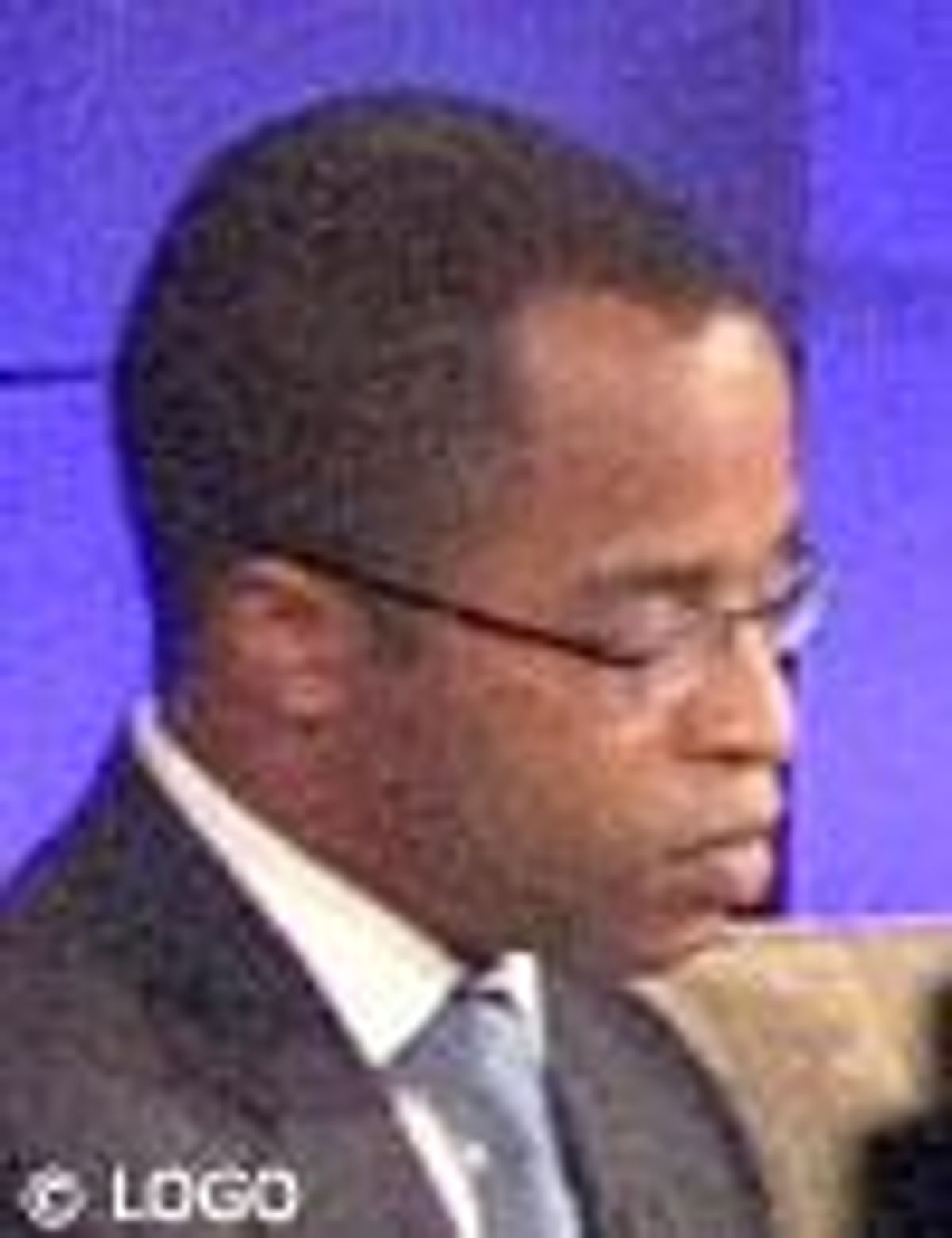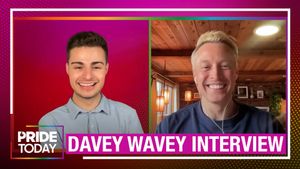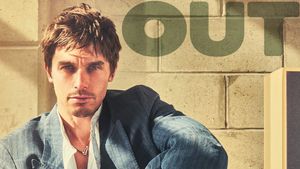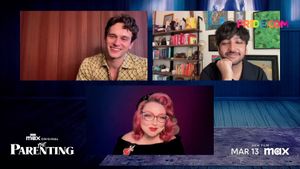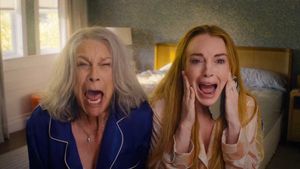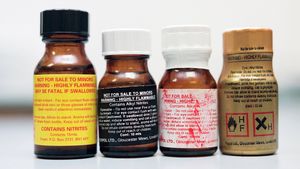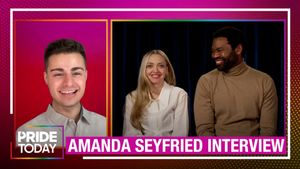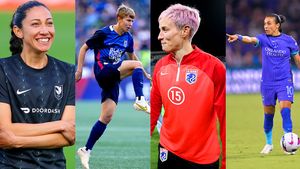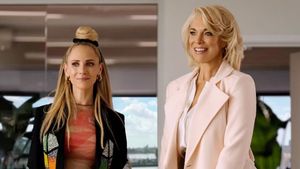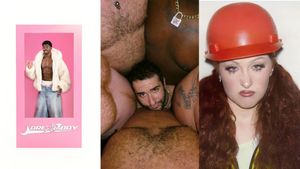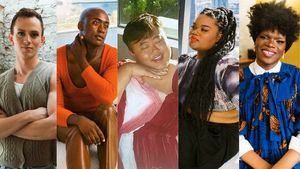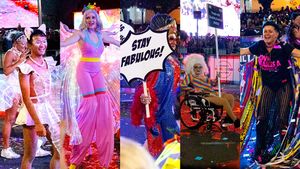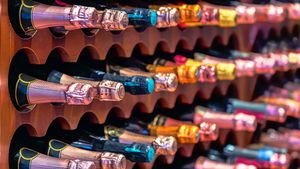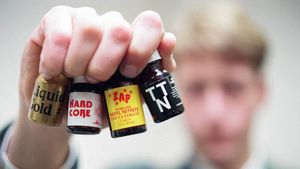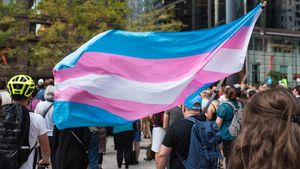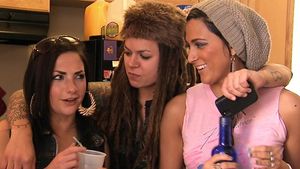Jonathan Capehart
was in Italy when he heard that friends had recommended
him as a panelist for a groundbreaking forum in which
presidential aspirants would discuss LGBT issues. The
Washington Post editorial writer was
perfect for the job: intelligent, authoritative, and
attractive, he won the 1999 Pulitzer Prize as part of the
New York Daily News editorial board, and he has
also been a Bloomberg News columnist, an adviser to
New York City mayor Michael Bloomberg, and a member of
the prestigious Council on Foreign Relations.
At the first
televised forum of its kind, sponsored by the Human Rights
Campaign and LGBT cable channel Logo, Capehart sat alongside
HRC president Joe Solmonese, musician Melissa
Etheridge, and the forum's moderator, political
columnist Margaret Carlson. Yet he wowed the crowd
with pointed, sometimes humorous questions to the White
House hopefuls. Now The Advocate turns the
tables by asking him the questions.
The Advocate:You seemed shocked when I told you that we thought
you were the breakout star of the event. Why was that?Capehart: Because I still see myself as that geeky
little kid from New Jersey who had a giant head and
enormous glasses to match.
How did it make you feel to be part of such a monumental
event in LGBT politics?
It was a great honor to even be asked. They
could have gone to any number of out gay journalists
to sit on that sofa. But I'll let you in on a
little secret: I didn't think it was that big a
deal--until I watched the replay on television.
How extraordinary to have a possible president of the
United States not be afraid to talk about LGBT issues on
live TV. Too bad the Republicans didn't avail
themselves of the same opportunity.
Six Democrats were auditioning for the job of commander
in chief, and you got to grill them. What was your
favorite question, and which candidate impressed
you the most?
My favorite question had to be the one to Rep. Dennis
Kucinich, asking whether there was anything the gay
community wanted that he opposed. He was
uncharacteristically speechless. What's really funny
is that when we did a little rehearsal -- you know, to
get a feel for the flow of things -- I asked that
question of our Kucinich stand-in. She was equally
speechless.
What was going through your head when New Mexico governor
Bill Richardson responded to a question asked by
Etheridge by saying that he thought homosexuality
is a choice?
"Holy shit! He just made news!"
Andrew Sullivan argued that you have not been outspoken
enough as a supporter of gay marriage. He said you
defended the leading candidates'
"Democratic cowardice" on that issue. What
say you?
I'll tell you what I told Andrew: What
troubles me is the unwillingness to accept the notion
that there's room for both of our approaches in the
fight for equality. Just because I'm not shouting
doesn't mean I'm not carrying the same
message. The movement needs both approaches.
Do you think the 2008 election will be a watershed
campaign cycle for LGBT issues?
It could be. It depends on whether gay marriage
or some other gay issue is trotted out as
"Wedge Issue 2008." There are so many urgent
issues facing the country -- the war, the economy,
health care -- that also impact gays and lesbians, I
don't think the electorate will be distracted
by politicians trying to appeal to their baser instincts. My
hope is that this will be a watershed campaign cycle
for GLBT issues because they were a part of the
American conversation, not separate from it.
Tell me a bit about the day in the life of Jonathan
Capehart. What's your daily routine? Where
do you find inspiration for your editorials?
The day starts at 6 a.m., when I groggily shuffle to my
door and pick up The Washington Post and New
York Times. Over a bowl of oatmeal with honey,
I read stories and think about what would make a good
editorial. At the office I get copies of The Wall Street
Journal, New York Daily News, and the New York
Post. The editorial board meets three times a
week. We all spend a lot of time talking to and
meeting with sources and figuring out what is worthy of
comment and what that comment should be.
You're a longtime member of the National Lesbian
and Gay Journalists Association. What does that
organization mean to you?
NLGJA means everything to me. It's hard
for me to put into words just how instrumental it has
been in my personal and professional growth. Charlie
Kaiser, Pam Strother, and Mike Frederickson--all
former leaders of NLGJA--were my biggest
champions, and I will always be grateful to them for
that.
You have an interesting experience in journalism,
politics, and public relations. How has that
combination hurt or helped you as you've advanced
in your career?
My stints in politics and PR have only helped
make me a better journalist. I have a clearer
understanding of how things work and why things
happen. That kind of perspective is invaluable and serves to
inform my thinking and writing.
How much have you written about gay issues in your career?
I've written lots, much to the
consternation of many. I think my editorials for the
New York Daily News decrying the second wave of
HIV infections among gay men were the most meaningful. I
took a lot of lumps because of them. They even got me
branded a neocon. But it was worth it every time
someone quietly came up to me to say thanks for what I
was doing.
Is there an underlying philosophy to your work?
I don't know if it is a philosophy as much as it
is a sense of duty. Many people are afraid to say what
they believe for fear of being criticized. I'm
more than willing to poke my head above the foxhole and
take bullets from the ideologues, on the left or the right,
if it means the views of the vast political middle get
a hearing.
